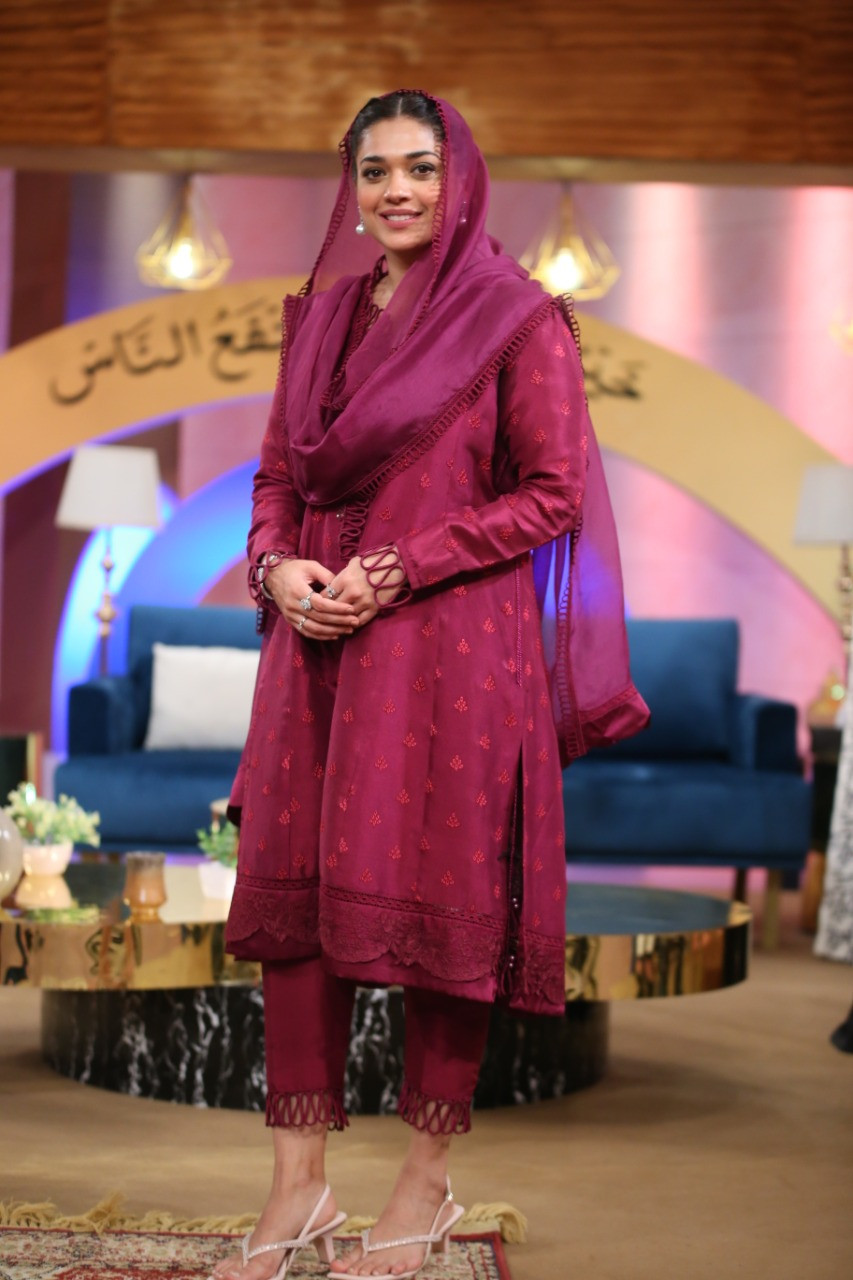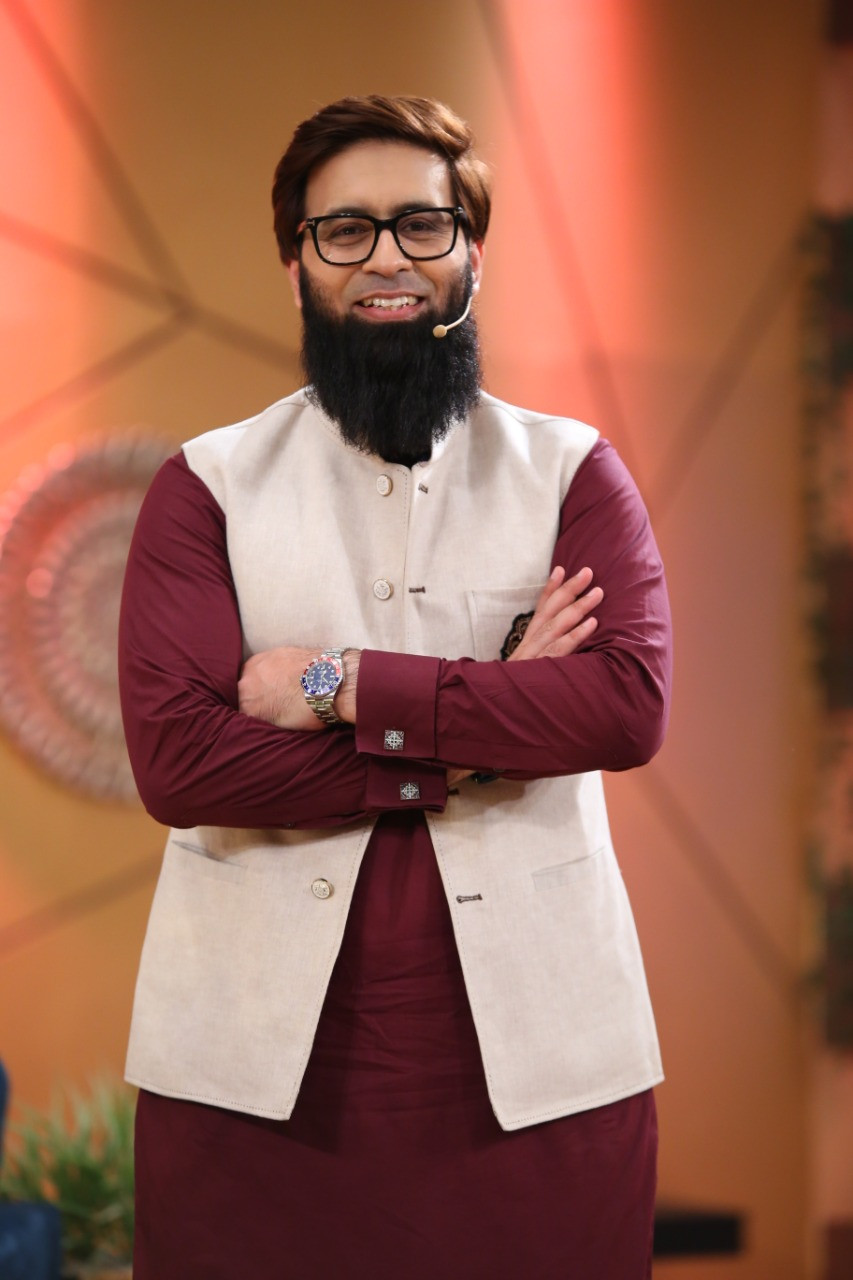The holy month of Ramazan is at its dawn and it brings with itself long nights of prayers, tranquillity and a filtered air of peace. As the Muslim community gears up to fast, it has become a practice to turn to TV channels for adhaan and islamic preachings while at the dinner table for sehri or iftar. Capitalising on that, TV channels compete with rivals to have the “biggest” and most “celebrated” Ramazan transmission every year as they rope in bigwigs from the showbiz industry and the islamic scholarly world. Holiness limits itself to wardrobe, vibe and melody while the substance is usually on two extremes; one upholding religious teachings while the other promoting material needs with a hoax of religiosity here and there. Some channels host ‘game shows’ in the name of serving humanity with “healthy competitions” while others have scholars and celebrities sitting around, discussing a variety of teachings and issues.
Over the past few years, given the acts performed on these Ramazan transmissions, it has garnered an ill-reputation for making a joke out of religion during the holy month– all for a few ratings. The major criticism it gets— by public and Islamic ulemas alike— is that it ridicules the essence of the holy month and merely uses it as a business opportunity.
However, while Khair-e-Ramazan, a transmission project scheduled to air on Express News, would sound like yet another celebrity-led rating hungry transmission, it promises to be everything but that. Hosted by the ever famous host and actor Jung Jung, and the corporate maestro Zeshan Afzal, Khair-e-Ramazan promises to bring forth a realistic and youth-centric program that intertwines Islam and its teachings with the current pressing social issues in the country.
Forgoing the traditional and rather ill-reputed format of such transmissions, it adapts it’s program to a more conversational and non-preachy style that aims to bring forth balanced perspectives on topics such as women empowerment, labour issues, water and sanitation, generation gap, and contemporary catastrophes such as climate change.
With Jung’s presence from a media fraternity, and Afzal from a corporate background, the duo hold quite a diverse set of people ranging from islamic scholars, professors from relevant fields of practice, and international and national representatives of social and corporate companies to discuss social responsibilities to ideate solutions to above mentioned current and upcoming crises while introducing the audience with a Islamic pathway to lead with. Jung and Zeshan, being parents, also discuss how the generation gap can be alleviated so parents and children can freely converse about their viewpoints while still following Sirat-ul-Mustaqim (the right path).
“What actually interested me is that our show does not follow the typical Ramazan transmission format that other channels do. It talks more about the social responsibilities,” Jung tells T Magazine. “It’s not all religion or mere material thirst, we’re trying to balance deen and dunya and trying to understand how it should be done. It brings a balance on screen– one that we seriously lack on such programs.”
Wonder women—in all spheres of life
“In a patriarchal society like ours, we always have to ask for our basic rights. We have to fight, and protest to live lives that we desire for ourselves,” exclaimed Jung as she talked about her “favourite” segment of the show titled Mai Rang-e-Kainat. Compiled by professor Maimoona Murtaza Malik, the segment highlights the contributions of 300 Sahabiyat, the exalted ladies associated with Prophet Mohammad who were known of propogating Islam with him, and presents them as the symbols of revolution, courage, wisdom, and resilience.
“We’re talking about no ordinary women. It’s sad that their professions are as infamous as their contributions during that time. These Sahabiyat were beauticians, designers, surgeons and what not. They participated in the war, picked up swords, and rode horses. It’s so sad because 1,400 years ago, we had women’s empowerment, and yet we still have to fight for it in the Islamic Republic of Pakistan. It’s surprising because it's not even the age of ignorance anymore,” shared Jung.

Syed Mohsin Iqbal, the executive producer for the show, also exclaimed that the main purpose of this segment is to put forward the idea that women demanding their rights is not outlandish. “If after watching such influential and important women from our Islamic history inspires ulemas and conservatives to follow pursuit and ‘allow’ the women in their lives to live with freedom, that’ll be enough success for us. The idea is to lead by example, and be informed. Itne hee huqooq dedein jo in Sahabiyat ke pass the toh wohi bohat hoga, isse zyada toh door ki baat hai.”
The segment was designed in the wake of frequent women’s rights protests across the country after news of several women being victims of abuse and violence came forward in the past few months. “Most of the people, including naat reciters, scholars, and professors on set are women. We’ve tried to lead by example here,” Iqbal shared as he concluded about the segment.
Change–the need of the hour
A first for any ramazan transmission, Khair-e-Ramazan dedicates a segment to create dialogue around the Sustainable Development Goals (SDGs), a collection of 17 interlinked global goals designed to be a blueprint for a better quality of life in future. Set up in 2015 by the United Nations General Assembly, these SDGs are intended to be achieved by 2030.
Describing the segment, Iqbal shared, “the idea is to realise our position in this world, our responsibility towards ourselves, this land, and other natives of it. The idea is to go back in time and rethink our actions in line with Islamic ideologies and start conversations on national television to emphasise that SDGs aren’t just a worldly issue. Islam tells us to value all living things and nature, this planet counts in that.”
Talking about the spirit of selflessness and giving in Ramazan, Afzal shared, “If we talk about gender equality, poverty, literacy, climate control, depletion of natural resources, contamination of water and other aspects affecting our quality of life, we know we need to bring change. And what better month is there to initiate change that not only serves us, but also humanity,”
A do-gooder himself, known for his contributions to society through his Million Smiles Corporation initiative, Afzal brings his experience of working in the corporate industry while touching upon these goals for CSR activities. He shares that “we are not preaching a solution to any of these problems but highlighting the urgency to acknowledge them and show responsibility towards it, and the path to that will be guided by our Islamic principles only.” He further adds, “We’ve life coaches, motivational speakers, scholars from Egypt, directors from NGOs and corporate organisations that deal with sustainable energy resources to get expert mindsets sit and talk about the impending doom that is upon us with these pressing matters.”
Jung also added, “For example, the Labour Day will come up during Ramazan and for it, we’ll discuss how we treat labourers in our country and draw parallels with how our religion advises us to treat them. We’ll hold each other accountable and converse about how to be better human beings.”
Critical thinking
Afzal added that one of his personal favourite segments is called Guftar se Kirdaar tak that brings the youth of the country on the stage and allows them to speak on subjects related to the SDGs and talk about the local concerns they face. “I love children and I know they are the future of this country. This segment not only promotes public speaking but allows the youth’s voice to echo on a national platform while having a space to interact with Islamic scholars, industry experts, media personnel and a corporate guy– all in the same room.”
The dissection of Naats
Another interesting aspect that makes this specific Ramazan transmission live up to its name is its exploration of Naats. It aims to dissect the origins of popular naats from its lyrics to its composition and meanings. “When we think of naats, our minds think of its melody. It’s hard to separate the two, and yet we shy away from talking about it in the name of music being haram,” shared Iqbal. “If we’re enjoying these melodic verses that bring us peace and get us closer to the Lord in the holy month, we should also be interested in a dive into history to know how they came into being.”

While Jung has hosted many talk shows and events before, she has returned to screens with a Ramadan transmission after a very long while. “I’m super excited because it's been a while since I've been back on screen as a host. I'm especially excited to be back and meet people during Ramazan. The feel of the set is great, the vibe and the energy is positive, the content is contemporary and advocates a balance between life and religion, and hence, I can’t wait for first ramadan to begin and to be back there with my crowd. It will be a must-watch, life-altering show, everyone,” shared Jung.
While Jung was excited, Afzal was a bit “hesitant” to join the transmission earlier as this will be the first time he’ll host an event on screen. “To go from the floors of the corporate sector to the floors of the media houses, and that too through a Ramazan transmission. That was a paradigm shift for me. I’m not going to lie, I was very hesitant about doing this when I was first approached to host this transmission. I didn’t want to make a fool out of myself, but it’s safe to say that the content won me over,” said Afzal.
Talking about how distinct Khair-e-Ramazan is from other transmissions, Afzal said, “All I will say is that we are not force-feeding mangoes, neither are we distributing free bikes over competitions, we are not here for entertainment that will sell. The show actually is aligned with the true spirits of the holy month and I know people will enjoy it.”
Jung also added, “Even if i was not hosting it, i would’ve asked people to watch it. There’s a lot of information there. We are looking forward to learning from these as we go, to be students amongst a pool of highly recognised and talented individuals guiding about current issues in a Islamic spotlight. Everything was guided 1400 years ago, we just forgot it, and now it’s time to relearn it the right way.”
She further added that the show is very youth centric. “It’s target audience is the youth since they’re most passionate about these subjects but do not have the resources to connect with their overly religious parents on the subject. This brings the two together to form healthy conversations while exerting a positive energy.”
